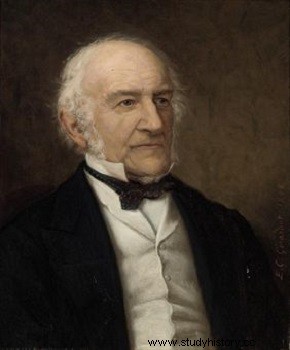
- “Love is a glance, a jerk and a wipe. »
The beginnings of a growing career
Sarah Bernhardt was born in 1844 in Paris. Coming from a Jewish family and an illegitimate child, she was soon abandoned by her mother. Sarah Bernhardt experiences an invisible childhood, a little girl that no one notices and to whom no one pays attention. In addition, her physical appearance does not correspond to the idea of beauty that we have at the time, with her lean body drawing on androgyneity. It was when she was enrolled in the theater that Sarah Bernhardt first received attention, and she liked it. Seizing the opportunity to take her revenge on life, she wants to break through at all costs and gives herself body and soul, but above all the body:in her early days, the future tragedian engages in her practices close to prostitution with, as an example, his mother who was a courtesan. She will hide this disastrous youth in favor of a vertiginous ascent.
- “From that day on, I armed myself for the fight, preferring to die in the middle of a fight than to extinguish myself in the regrets of a wasted life. » [1]
Dramatic figure
Sarah Bernhardt enjoys success with her dazzling performance in Le Passant . She was twenty-five when her career began. And it is a global career that is offered to her. Passionate and drunk, even frenetic in her most beautiful roles, the popular tragedian is very attentive to the emotions of her audience, and persists in making them see each last scene through a torrent of tears. Her tours around the world take her to America, Russia, while playing in French, faithful to the original language of the texts she declaims as well as to their authors. Moreover, Sarah Bernhardt is not confined to female roles:she soon uses her androgynous body to cross-dress and take on male roles. But what thrills viewers the most is seeing Sarah Bernhardt die:the tragic actress excels in the game of agony and death. She dies at every performance, and the world is dazzled by her ability to mimic death with terrible accuracy. We particularly remember her interpretation of the role of Phèdre in the eponymous tragedy, as well as that of Salomé, also the title of the play by Oscar Wilde. The role of the Queen in Ruy Blas by Victor Hugo, in 1872, marks the beginning of an icon. Contemporary of the playwrights of the second half of the 19th century, Sarah Bernhardt met and inspired more than one in their theatrical creations. Edmond Rostand, for example, wrote The Distant Princess (1895) whose main role was reserved for her.
- “Usually you can throw away the troubles, the worries of life, for a few hours, you strip your own personality to endorse another; and we walk in the dream of another life, forgetting everything. » [2]
A last death
The early years of the 20th century transformed Sarah Bernhardt into a film actress. The expansion of cinematography mixed with the same momentum that propelled her on stage, she played Hamlet in 1900 and was filmed for the first time.
At a time when her career was at its paroxysm, Sarah Bernhardt becomes the victim of journalists and admirers who are too present, and the criticisms fuse, in particular the caricatures of her with a prominent nose:pejorative representation of a successful Jewess. But the praise will take over when, in 1914, she shows her support for the homeland alongside the hairy people. It was in 1923, in the middle of filming, that Sarah Bernhardt died, and this time without getting up after the curtain fell. A photo of her put in a beer circulates and moves the whole country. France is in mourning, and pays homage to him one last time when the funeral procession passes in front of the Sarah-Bernhardt theatre.
- “You have to hate very little, because it is very tiring. You have to despise a lot, forgive often and never forget. Forgiveness cannot lead to forgetting; for me, at least. » [3]
